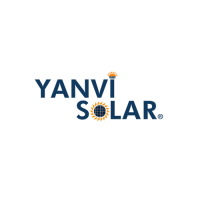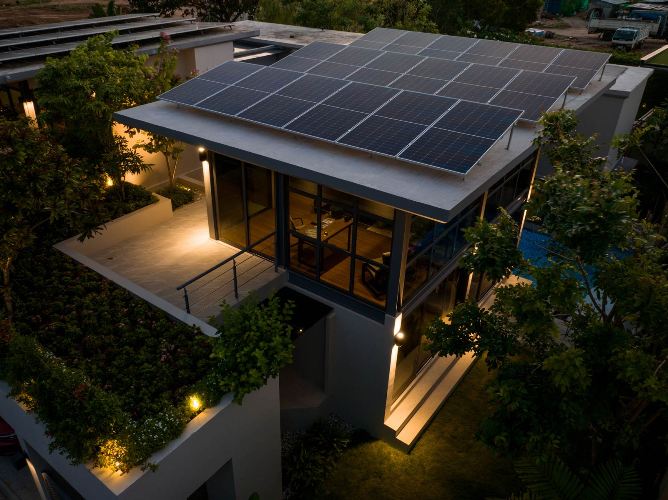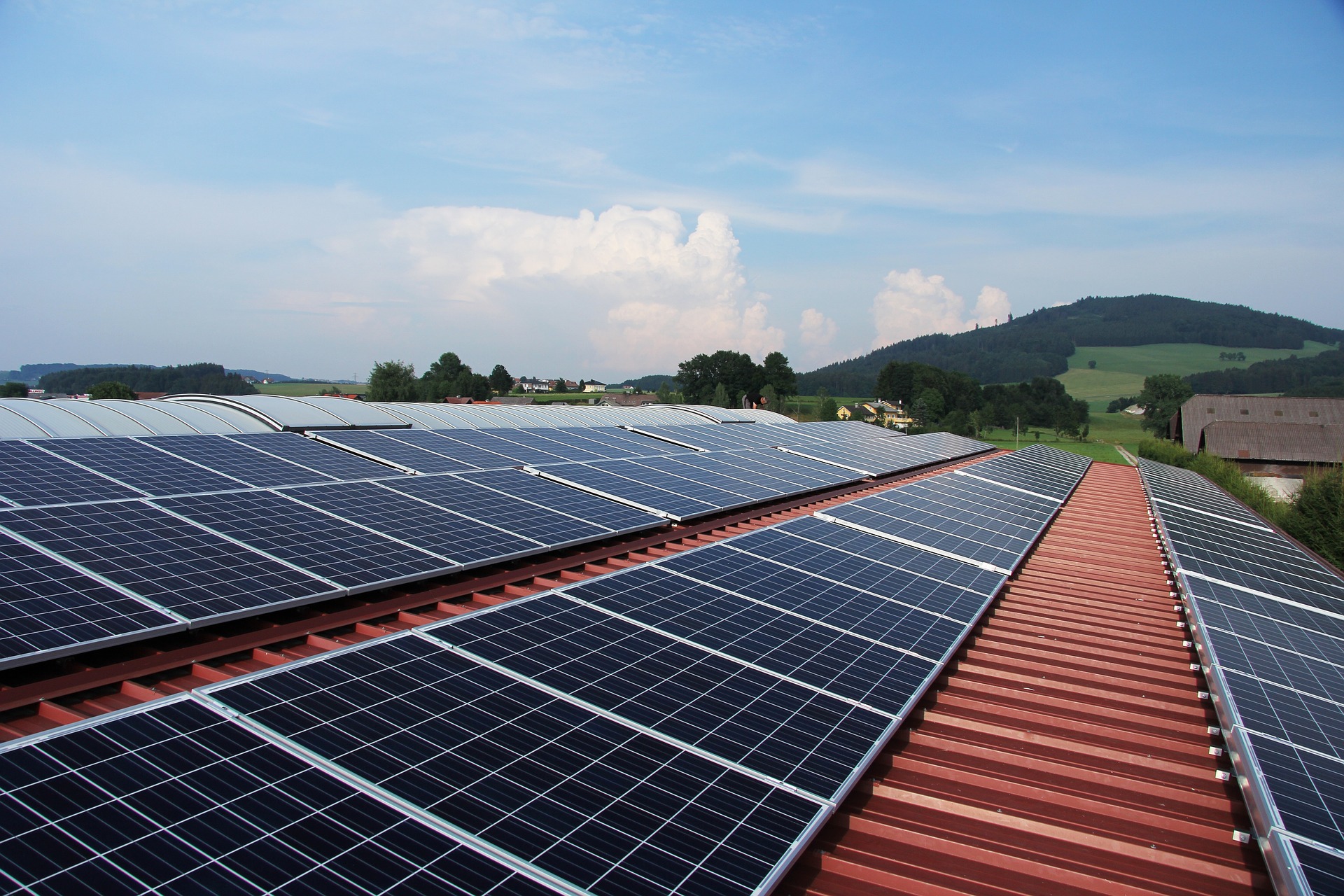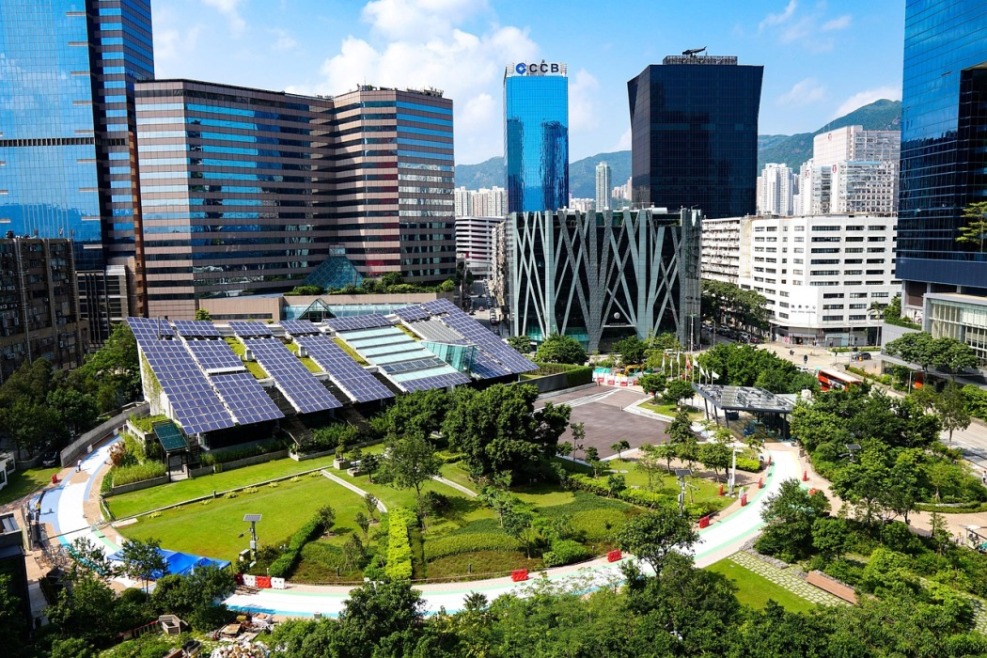What is the Purpose of Solar Panels?
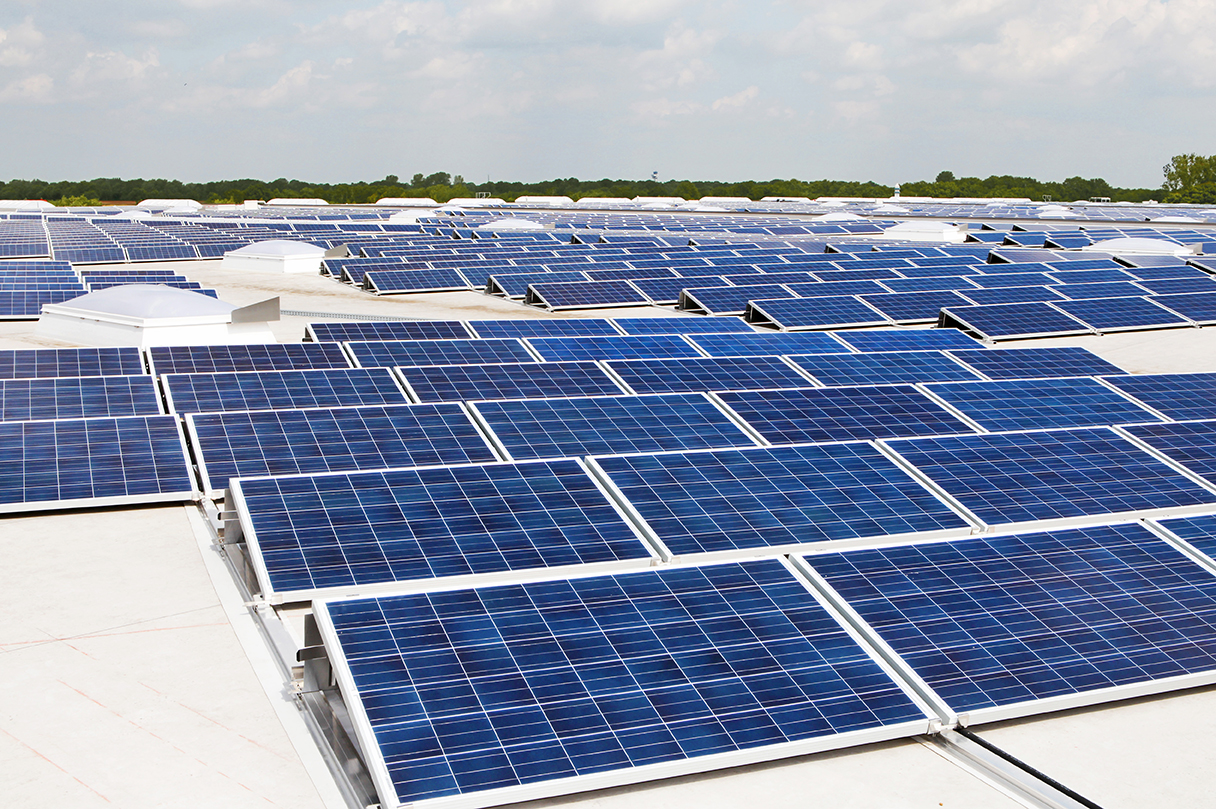
Strong 8k brings an ultra-HD IPTV experience to your living room and your pocket.
Have you ever wondered why there's so much buzz about solar panels these days? Well, let's dive into the world of solar energy and explore the purpose of these amazing devices. Solar panels are not just fancy tech for the eco-conscious; they are powerful tools that harness the sun's energy to provide us with clean, renewable electricity. With the rising concerns over climate change and the depleting reserves of fossil fuels, solar panels have become a beacon of hope for a sustainable future.
History of Solar Panels
Solar panels might seem like a modern invention, but their history dates back over a century. The photovoltaic effect, which is the fundamental principle behind solar panels, was first discovered in 1839 by French physicist Alexandre Edmond Becquerel. However, it wasn't until the 1950s that practical solar cells were developed by Bell Labs. These early cells were expensive and inefficient, but they laid the groundwork for the advancements we see today.
Since then, solar technology has come a long way. The 1970s saw significant advancements, driven by the oil crisis and the growing awareness of environmental issues. Governments and private companies started investing heavily in solar research, leading to the development of more efficient and affordable solar panels. Today, solar panels are more efficient than ever, with some capable of converting over 22% of the sunlight they receive into electricity.
How Solar Panels Work
At the heart of a solar panel's operation is the photovoltaic effect. Solar panels are made up of many small units called photovoltaic cells, usually made from silicon. When sunlight hits these cells, it knocks electrons loose from their atoms, creating an electric current. This direct current (DC) is then converted into alternating current (AC) by an inverter, which is the type of electricity used in homes and businesses.
The photovoltaic cells are typically arranged in a grid-like pattern on the panel's surface. Each cell consists of two layers of silicon, one positively charged and the other negatively charged. When sunlight strikes the cell, it energizes the electrons, causing them to flow from the negative layer to the positive layer, creating an electric current. This current is captured by wiring and sent to the inverter, which converts it to AC power.
Types of Solar Panels
There are several types of solar panels available, each with its own advantages and disadvantages. Monocrystalline panels are made from single-crystal silicon and are known for their high efficiency and longevity. These panels are often more expensive but provide the best performance in terms of energy output per square meter.
Polycrystalline panels, on the other hand, are made from multiple silicon crystals and are generally less expensive but also slightly less efficient. They are easier and cheaper to produce, making them a popular choice for residential installations. However, they require more space to generate the same amount of electricity as monocrystalline panels.
Thin-film panels are made by depositing a photovoltaic material onto a substrate and are flexible and lightweight, making them suitable for unique applications. They are less efficient than crystalline panels but can be used in situations where traditional panels are not practical, such as on curved surfaces or portable solar chargers.
Benefits of Solar Panels
The benefits of solar panels are numerous. Environmentally, they reduce our reliance on fossil fuels, thereby decreasing greenhouse gas emissions and pollution. By generating electricity from the sun, we can significantly reduce our carbon footprint and help combat climate change. Solar energy is a clean, renewable resource that does not produce harmful emissions or deplete natural resources.
Economically, they can significantly lower electricity bills and even allow homeowners to sell excess power back to the grid. This process, known as net metering, credits solar panel owners for the electricity they add to the grid, reducing their overall utility costs. In many cases, the savings on energy bills can offset the initial cost of installation within a few years.
Furthermore, solar panels provide energy independence, reducing the vulnerability to energy price fluctuations and supply disruptions. By generating their own electricity, homeowners and businesses can protect themselves from rising energy costs and ensure a reliable power supply. This is particularly important in areas prone to power outages or where the electricity grid is less reliable.
Applications of Solar Panels
Solar panels are incredibly versatile and can be used in various settings. Residential solar panels are becoming increasingly common as more homeowners look to reduce their energy costs and environmental footprint. Installing solar panels on rooftops or in backyards allows homeowners to generate their own electricity and reduce their reliance on the grid.
Commercial installations can be found on the rooftops of businesses, schools, and government buildings, providing substantial cost savings and promoting sustainability. Businesses can use solar panels to power their operations, reduce their energy bills, and demonstrate their commitment to environmental responsibility. Solar panels can also provide shade and insulation, reducing cooling costs and improving energy efficiency.
Industrial applications include powering large facilities and contributing to the energy grid on a much larger scale. Solar farms, which consist of thousands of solar panels, can generate enough electricity to power entire communities. These large-scale installations are becoming more common as the demand for renewable energy increases and the cost of solar technology continues to decrease.
Solar Installation in Dubai
Dubai has emerged as a leader in solar energy adoption. The city’s abundant sunshine and strong government support have spurred significant growth in the solar sector. Initiatives like the Dubai Clean Energy Strategy 2050 aim to make Dubai a global hub for clean energy by providing 75% of its total power output from clean energy sources by 2050. This commitment has led to an increasing number of solar installations across the city, from residential rooftops to large solar farms.
The Dubai Electricity and Water Authority (DEWA) has played a crucial role in promoting solar energy by offering incentives and streamlined processes for solar panel installations. DEWA’s Shams Dubai initiative encourages homeowners and businesses to install solar panels and connect them to the grid, allowing them to reduce their energy bills and contribute to the city's renewable energy goals.
Choosing a Solar PV Panel Installer in Dubai
When it comes to installing solar panels, choosing the right installer is crucial. In Dubai, there are several factors to consider. Look for companies with strong credentials and certifications, such as those recognized by DEWA. It’s also important to consider the company’s experience, customer reviews, and the quality of the products they use. Cost is another key consideration, but remember that the cheapest option isn’t always the best in the long run.
An experienced and reputable installer will conduct a thorough site assessment, provide a detailed proposal, and ensure that the installation meets all regulatory requirements. They will also offer maintenance and support services to ensure that your solar panels continue to operate efficiently for many years.
The Process of Solar Panel Installation in Dubai
The installation process for solar panels involves several steps. First, a site assessment is conducted to determine the best location and orientation for the panels. The installer will evaluate factors such as roof size, angle, and shading to optimize the system's performance. This assessment is crucial for ensuring that the panels receive maximum sunlight and generate the most electricity possible.
Next, a design and planning phase ensures that the system will meet the specific energy needs of the property. The installer will create a detailed plan that includes the number of panels, their layout, and the necessary electrical components. This plan must comply with local building codes and DEWA regulations.
The actual installation involves mounting the panels, setting up the inverters, and connecting the system to the electrical grid. The panels are typically installed on the roof using mounting brackets and secured with bolts. The inverters, which convert DC power to AC power, are installed nearby and connected to the panels with wiring. Once installed, the system is tested to ensure it operates efficiently and safely.
Maintenance of Solar Panels
Maintaining solar panels is relatively straightforward. Regular cleaning is essential to ensure they operate at peak efficiency, as dirt and debris can block sunlight. Cleaning the panels with water and a soft brush or sponge is usually sufficient, but more thorough cleaning may be necessary in areas with high levels of dust or pollution.
It's also important to monitor the system's performance to detect any issues early. Most modern solar systems come with monitoring software that alerts owners to potential problems. This software can track the system's output, detect faults, and provide valuable insights into its performance. Additionally, while solar panels are durable, occasional inspections and repairs may be necessary, especially after severe weather.
Challenges in Solar Panel Installation
Despite the many benefits, there are challenges associated with solar panel installation. The initial cost can be high, although this is often offset by long-term savings and government incentives. The cost of solar panels has decreased significantly in recent years, but the upfront investment can still be a barrier for some homeowners and businesses.
Space requirements can also be a limitation, especially in densely populated urban areas. Solar panels need a large, unobstructed area to capture sunlight effectively. In some cases, roof space may be insufficient, and ground-mounted systems or community solar projects may be necessary.
Furthermore, solar panels are dependent on weather conditions, and their efficiency can decrease on cloudy or rainy days. While Dubai enjoys abundant sunshine, it is important to consider seasonal variations and plan for times when solar generation may be lower. Battery storage systems can help mitigate this issue by storing excess energy for use during periods of low sunlight.
Future of Solar Panels
The future of solar panels looks bright, with continuous advancements in technology. Researchers are working on increasing the efficiency of solar cells and reducing the cost of production. Innovations such as bifacial panels, which capture sunlight from both sides, and solar tiles, which integrate seamlessly with roofing materials, are becoming more prevalent.
Additionally, there is growing interest in integrating solar power with other renewable energy sources, such as wind and hydroelectric power, to create more resilient and efficient energy systems. Hybrid systems that combine solar with battery storage or other renewable sources can provide a consistent and reliable power supply.
Moreover, as governments worldwide continue to prioritize renewable energy, we can expect further growth in the solar industry. Policies and incentives that support solar adoption, such as tax credits, rebates, and renewable energy mandates, will play a crucial role in driving the expansion of solar installations.
Conclusion
Solar panels are a vital component of our transition to a more sustainable and resilient energy system. They offer numerous environmental, economic, and social benefits, from reducing greenhouse gas emissions to lowering energy costs and promoting energy independence. As technology continues to advance and the costs of solar panels decrease, their adoption is likely to accelerate, bringing us closer to a cleaner, greener future.
Dubai, with its abundant sunshine and strong commitment to renewable energy, is a prime example of how solar power can transform a city's energy landscape. By choosing the right installer and understanding the installation process, residents and businesses in Dubai can harness the power of the sun to meet their energy needs and contribute to a more sustainable future. The journey of solar energy has just begun, and its potential is limitless. Embracing solar panels today means investing in a brighter, cleaner tomorrow.
Note: IndiBlogHub features both user-submitted and editorial content. We do not verify third-party contributions. Read our Disclaimer and Privacy Policyfor details.

